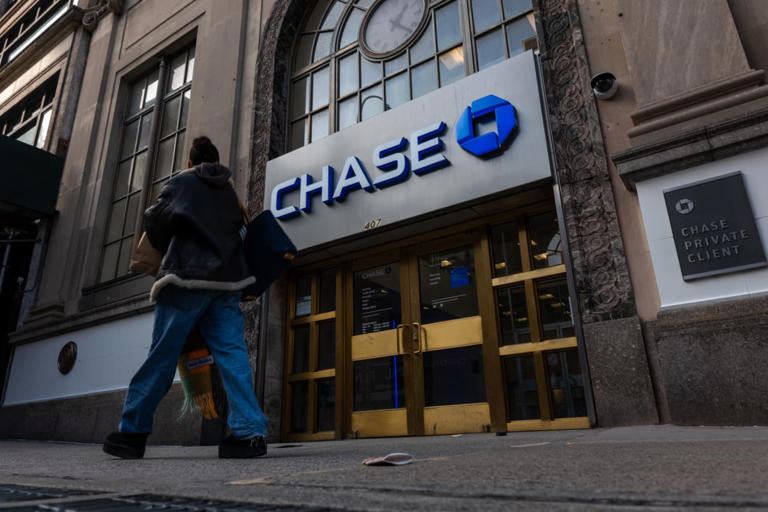Jamie Dimon, the respected CEO of JPMorgan Chase, delivered a dose of unexpected news during the bank’s investor day in New York City, causing a ripple effect in the financial markets. Dimon’s comments led to a notable drop in JPMorgan shares, which fell by as much as 4% after he stated that the company wouldn’t repurchase stock at current levels, a departure from previous suggestions he had made. This unexpected announcement immediately impacted the stock price, sending it on track for its worst day since April 12, when the bank reported first-quarter earnings results and shares plummeted more than 6%.
Dimon’s statement about the company’s reluctance to buy back stock at current prices rattled investors, particularly as share buybacks typically tend to boost stock prices in the short term. His candid remarks underscored JPMorgan’s strategic approach to capital allocation, signaling a shift away from immediate shareholder returns towards a more cautious and conservative stance. Dimon emphasized that the focus was on helping existing shareholders, rather than simply returning cash to exiting shareholders through buybacks.
Moreover, Dimon hinted at a more advanced stage of planning for his succession, a topic that has been of significant interest to investors given his pivotal role as one of the longest-tenured Wall Street CEOs. While he maintained his characteristic humor, Dimon suggested that planning for his replacement was progressing, indicating a departure from previous public comments about staying on for “five more years” whenever asked about succession.
Investors also considered JPMorgan’s updated financial outlook, which included an increased forecast for net interest income (NII) for the year. The bank raised its overall NII forecast to $91 billion from a previous expectation of $90 billion, signaling optimism about its ability to capitalize on the Federal Reserve’s delay in cutting benchmark interest rates. However, JPMorgan acknowledged potential headwinds ahead, particularly in light of uncertainties surrounding future interest rate cuts and their potential impact on NII.
Analysts noted that JPMorgan’s increased NII guidance reaffirmed its position as a beneficiary from a prolonged period of low interest rates. However, the bank also acknowledged the evolving environment, with tailwinds potentially turning into headwinds in the future. This recognition of potential challenges ahead reflects JPMorgan’s commitment to navigating changing market dynamics and maintaining its competitive edge in the financial industry.
Overall, Dimon’s remarks and JPMorgan’s updated financial outlook provided valuable insights into the bank’s strategic priorities and its approach to managing shareholder expectations in a dynamic market environment. As investors digest this information, they will closely monitor JPMorgan’s performance and strategic decisions in the coming months, particularly as the bank continues to adapt to evolving market conditions and regulatory developments.
